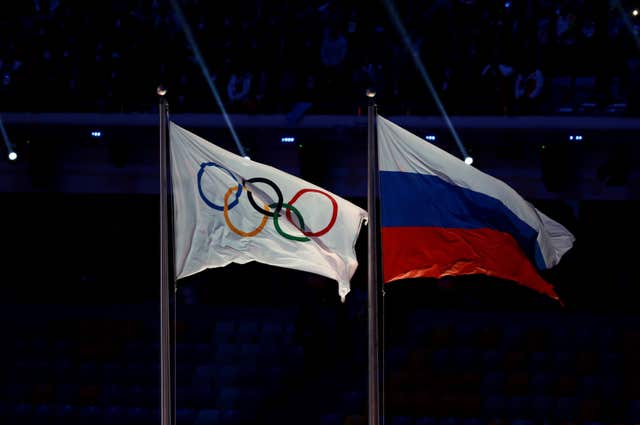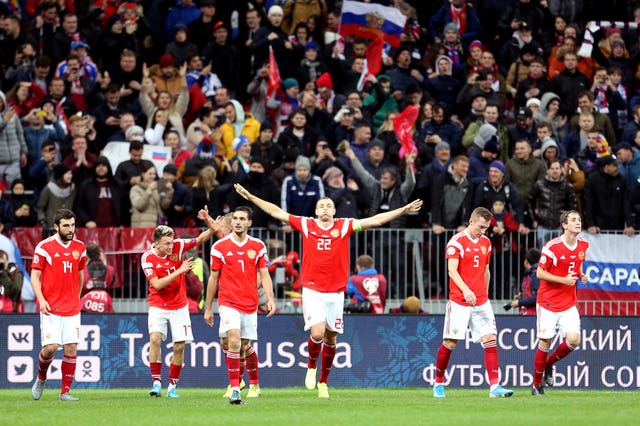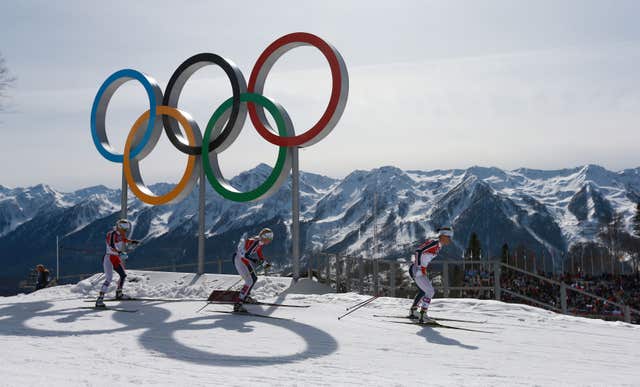Russia will not be officially represented at the next summer and winter Olympic Games or the 2022 football World Cup after a ruling by the Court of Arbitration for Sport.
A panel of three judges at CAS unanimously found the Russian anti-doping agency RUSADA non-compliant with the global anti-doping code over its failure to provide authentic drug-test data upon request by the World Anti-Doping Agency.
The Russian name, flag and anthem will now be barred from the Tokyo and Beijing Games as well as the football finals in Qatar, should Russia qualify, CAS said in a statement.

The ban also covers the Paralympic Games next summer and in Beijing, plus world championship events organised by a WADA signatory up to December 16, 2022.
Athletes from Russia will be able to compete so long as they are not subject to a suspension themselves, that their uniform does not contain the Russian flag and does contain the words ‘neutral athlete’, CAS said.
RUSADA will only be reinstated to compliance if it respects and observes the sanctions imposed, and paid all related fines and contributions, CAS said.
Russia will also be banned from hosting or bidding to host Olympic or Paralympic Games or other world championship events related to a WADA signatory.
Where hosting rights have already been awarded to them, the relevant governing body should withdraw them, the ruling stated.

The panel concluded in reaching its decision: “This panel has imposed consequences to reflect the nature and seriousness of the non-compliance and to ensure that the integrity of sport against the scourge of doping is maintained.
“The consequences which the panel has decided to impose are not as extensive as those sought by WADA. This should not, however, be read as any validation of the conduct of RUSADA or the Russian authorities.
“In making its orders, the panel is limited by the powers granted under the applicable law.
“It has considered matters of proportionality and, in particular, the need to effect cultural change and encourage the next generation of Russian athletes to participate in clean international sport.”
WADA filed a request for arbitration in January, after RUSADA appealed against the four-year ban imposed for non-compliance the previous month.

WADA investigators found that data requested from Russia under the terms of its reinstatement to compliance in 2018 – which was sent to the global body in January 2019 – had been manipulated.
WADA president Witold Banka said: “WADA is pleased to have won this landmark case. We left no stone unturned in investigating this very complex matter and in presenting our case before CAS.
“The panel has clearly upheld our findings that the Russian authorities brazenly and illegally manipulated the Moscow Laboratory data in an effort to cover up an institutionalised doping scheme.
“In the face of continual resistance and denial from Russia, we clearly proved our case, in accordance with due process. In that regard, this ruling is an important moment for clean sport and athletes all over the world.”
Banka added his agency was “disappointed” that the panel did not completely endorse WADA’s initial sanctions, saying he believed they were “proportionate and reasonable”.
Statement from USADA CEO Travis T. Tygart on Russia CAS Appeal and Ruling https://t.co/3cFKhOyKCf — USADA (@usantidoping) December 17, 2020
“Ultimately WADA is not the judge but the prosecutor and we must respect the decision of the panel,” he said.
The chief executive of the United States Anti-Doping Agency, Travis Tygart, was heavily critical of the CAS decision.
“USADA acknowledges the devastating decision from the Court of Arbitration for Sport (CAS) in the Russia case that hands WADA and clean athletes a significant loss,” he said.
“At this stage in this sordid Russian state-sponsored doping affair, now spanning close to a decade, there is no consolation in this weak, watered-down outcome.
“To once again escape a meaningful consequence proportional to the crimes, much less a real ban, is a catastrophic blow to clean athletes, the integrity of sport, and the rule of law.”
IOC statement on the CAS decision in the WADA v. RUSADA arbitration https://t.co/BXznIDAMef — IOC MEDIA (@iocmedia) December 17, 2020
The International Olympic Committee said it would work with international sports federations and the International Paralympic Committee to “carefully evaluate” the decision and adopt a consistent approach to implementing it.
Nicole Sapstead, the chief executive of UK Anti-Doping, said it was “frustrating” that the sanctions had been cut to two years.
“This was a state-sponsored conspiracy to undermine the values of sport, that robbed clean athletes of medal hopes and an opportunity for celebration that impacted their livelihoods and future careers,” she said.
“This decision demonstrates WADA’s ability to implement a global set of anti-doping rules to which everyone in sport is held. The Russia ban is the most severe sanction in sport ever imposed on a nation and the first time in sport that sanctions have been applied to an entire country rather than individual athletes or sports federations.
“WADA quite rightly sought to impose the maximum four-year ban. It is hard to imagine a more serious breaking of the rules in sport, so I don’t understand the justification for this reduction.”






